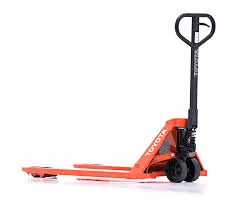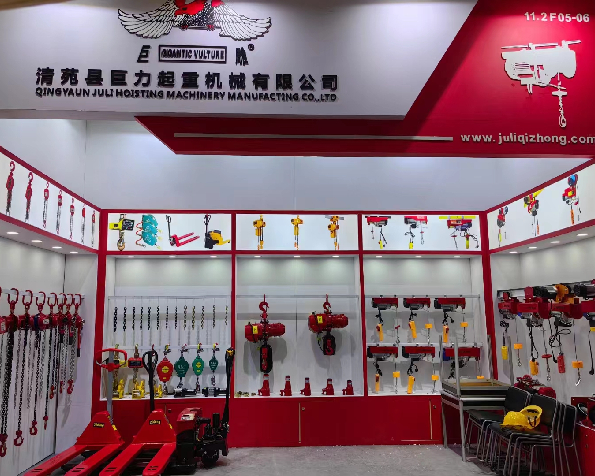Chain blocks, also known as chain hoists, are indispensable tools in a myriad of industries, playing a crucial role in lifting heavy loads with safety and efficiency. As technology advances, the variety of chain blocks available on the market has expanded significantly, each suited to specific applications and environments. Understanding the different types of chain blocks can help businesses make informed decisions that enhance productivity and safety.

Manual Chain Blocks Recognized for their simplicity and cost-effectiveness, manual chain blocks are operated by hand, making them ideal for use in environments where power sources are unavailable or impractical. These devices are typically used in workshops, small warehouses, and outdoor sites.
They require low maintenance and are known for their durability. Their straightforward mechanism consists of just a chain and a lifting hook, which also makes them relatively easy to inspect and repair.
Electric Chain Blocks Electric chain blocks offer significant advantages in environments that demand frequent and heavy lifting. Powered by electricity, these chain blocks can lift heavier loads more quickly and with less physical effort compared to manual versions. They are excellent for assembly lines and warehouses where time efficiency is critical. The inclusion of advanced safety features such as emergency stop buttons and thermal protection highlights the focus on safety and operational efficiency.

Lever Hoists Also known as lever block chains, these are similar to manual chain blocks but incorporate a lever for enhanced control. The lever mechanism allows for precise load positioning, making them ideal for applications requiring exact load alignment. Lever hoists are versatile, being usable in both horizontal and vertical lifting operations. They are widely favored in construction sites and industries that require regular load adjustments.
Pneumatic Chain Blocks For environments where explosive risks are a concern, pneumatic chain blocks provide a safe lifting solution. Operated using compressed air, these chain blocks minimize the risk of sparks, which is vital in chemical plants or mining environments. They are rugged, durable, and provide smooth operation, making them suitable for handling weights in rugged industrial settings.
Hydraulic Chain Blocks Employed primarily in heavy-duty applications, hydraulic chain blocks deliver immense lifting power and precision control. They are used in industries where particularly heavy loads are common, such as shipbuilding or steel manufacturing. The hydraulic system ensures smooth load handling and minimizes the risk of overload.
types of chain block
Compact Chain Blocks Designed to be lightweight and portable, compact chain blocks are perfect for mobile operations or confined spaces where other chain block types might be impractical. While they might not offer the same lifting capacity as their larger counterparts, their ease of transport and deployment often outweighs other considerations in certain situations.
Specialized Chain Blocks Some industry-specific operations necessitate the use of specialized chain blocks, tailored to meet unique challenges. Such specializations might include high-capacity hoists for the wind energy sector, or corrosion-resistant models for marine applications. These specialized tools are developed in collaboration with industry experts to ensure compliance with sector-specific standards and operational requirements.
Choosing the right type of chain block entails a thorough understanding of operational needs and environment-specific challenges. Companies should consider factors such as load capacity, frequency of use, safety features, and power sources when selecting a chain block for their operations. Regular maintenance and proper training in the use of these devices are crucial to ensuring both safety and longevity of the equipment.
For businesses looking to invest in chain blocks, engaging with manufacturers who demonstrate expertise and commitment to quality can significantly enhance trustworthiness. Those offering comprehensive after-sales support, including servicing and parts replacement, further cement their authority as reliable partners in industry. By maintaining equipment through certified service providers, companies bolster their operational efficiency and safety standards.
Overall, chain blocks serve as a testament to the innovation and adaptability of industrial tools. The broad spectrum of chain block types available today underscores their versatility and critical role in modern industrial processes. Their development continues to evolve, guided by a commitment to safety, efficiency, and meeting the high standards required by diverse industries worldwide.








